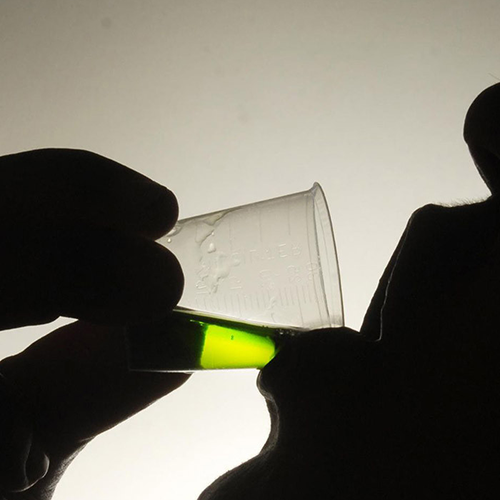

Methadone is an opiate drug sometimes prescribed to relieve severe, chronic pain. However, methadone’s most common use is as a detox treatment or long-term treatment for opiate addiction. In fact, it’s one of the oldest forms of pharmacological drug treatment, developed in the 1960s as an effective means of overcoming opiate addictions. It is a synthetic opioid that blocks the effects of heroin and other opiates. Methadone is available as a tablet, liquid, or injection.
However, as an opiate itself, methadone does have an addictive potential, which has only grown since its use as a pain reliever. In 2008, an estimated 750,000 methadone prescriptions were written for pain relief, while only about 250,000 were prescribed methadone for opiate addiction treatment.
Symptoms of Methadone Addiction
The Symptoms of Methadone Addiction
Drug addiction is based on a chemical dependency. Many drugs, like methadone, act by flooding the brain in chemicals, particularly dopamine. In order to maintain equilibrium, the brain will limit or block those overproduced chemicals. Many of these chemicals are necessary to everyday life. Dopamine, for instance, is used in movement, reward, motivation, pleasure, and a variety of other functions. Consistent use of the drug not only provides a user with a sense of reward, but also floods the body with the chemicals they need.
Some common symptoms of methadone addiction include:
Taking methadone without a prescription; Compulsively craving and using methadone; Using methadone despite knowing it has negatively affected your life; Using methadone to promote a high instead of its prescribed use
Methadone Withdrawal Symptoms
Muscle aches and pains; Flu-like symptoms; Nausea and vomiting; Cramps; Diarrhea; Anxiety; Fatigue; Restlessness; Sweatiness
Effects of Methadone Use
The Effects of Methadone
Much like other opiates, methadone creates a high that is characterized by a feeling of euphoria coupled with an intense calm and relaxation. However, depending on your personal health, you may experience a variety of side effects, including:
- Nausea
- Vomiting
- Constipation
- Dizziness
- Drowsiness
- Feeling faint
- Sweating
- Dry mouth
Dangers of Methadone Use
While it’s designed to treat addictive drugs, methadone itself does have an addictive potential. Addiction can ruin your physical health and negatively impact all aspects of your life. It can cause you to say hurtful things, resort to crime or other reckless behavior, and lash out at loved ones.
The biggest danger with methadone is that it is meant to last a long time. With opiate addiction treatment, methadone can suppress withdrawal symptoms for up to 24 hours. With pain relief, it can only relieve pain for four to eight hours. Methadone stays in the system for up to 59 hours, but someone in need of pain relief may take more doses before the drug has worked its way out of their system.
Those taking methadone should also refrain from driving or operating heavy machinery.
Complications of Methadone Use
- Swelling in the face, tongue, or throat
- Confusion
- Cold, clammy skin
- Seizures
- Significant dizziness
- Severe restlessness or nervousness
- Drowsiness
- Stomach pain
- Mood swings
- Difficulty urinating

Medical Intervention for Methadone Addiction
Medical Intervention
Medication plays an important role in detox and your overall recovery. It helps the process of working toxic chemicals out of your body while also curbing cravings and easing methadone withdrawal symptoms.
While it may seem strange to treat an addiction treatment medication with another addiction treatment medication, it is possible. Buprenorphine is similar to methadone but does not cause a similar replacement addiction. It is the active ingredient in the medications Suboxone and Subutex. It’s beneficial in that it:
- Helps to reduce withdrawal symptoms
- Is only needed once every other day instead of once a day like methadone
- Has a lower risk of overdose occurrence than methadone
- Is more effective at reducing cravings than naltrexone

How to Find the Right Methadone Detox Center for You
Georgia Drug Detox is here to help you find an inpatient detox facility for your specific needs. If you have any questions about methadone treatment or insurance, please don’t hesitate to contact us. When you’re ready, call us at (678) 771-6411 and begin your admission process today.

